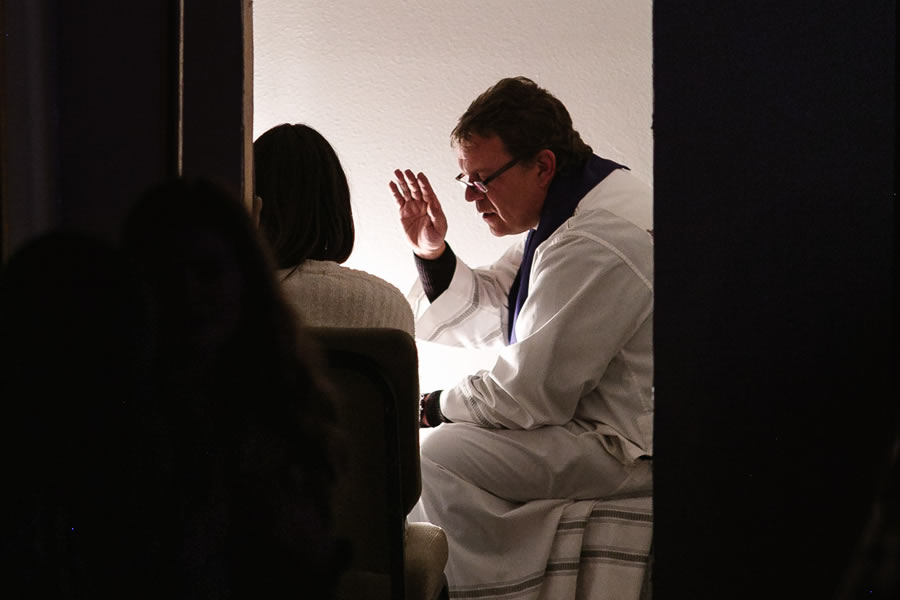Corpus Christi Blog

And Forgive Us Our Trespasses, as We Forgive Those Who Trespass Against Us
07-25-2021Weekly ReflectionJen Arnold, M.A. in Theology and CatecheticsThe Catechism refers to the fifth petition in the Lord’s prayer as “astonishing.” It says that the first part of this phrase is implied in the first three petitions, which honor and praise God, because Christ’s sacrifice was precisely for the forgiveness of our sins. Therefore, in praising Him, we are acknowledging what He has done for us in that act. However, “according to the second phrase, our petition will not be heard unless we have first met a strict requirement. Our petition looks to the future, but our response must come first, for the two parts are joined by the single word ‘as’” (CCC #2838). If we want forgiveness for our transgressions, we are obligated to forgive the transgressions of others.
At baptism, we receive God’s sanctifying grace and the removal of the stain of original sin on our souls. However, due to our fallen nature, we are never fully rid of our propensity to sin. When we sin, we turn away from God, which greatly saddens Him. Each time we recognize our sins and turn back to the merciful Father, asking for His forgiveness, we are like the prodigal son (CCC #2839). We can be confident in His goodness and that He will never tire of welcoming us back into His loving arms.
The reason the petition and God’s forgiveness is conditional is not because of some cruelty on God’s part, but rather because of our own nature. When we do not forgive others, we create in ourselves a hardness of heart. When our hearts are hard, we cannot be open to receive the love and forgiveness God has to offer to us. Additionally, if we believe that we, along with all of our brothers and sisters, make up the Body of Christ, then we must love all of the members of the body as we love the head, who is Jesus. His Body cannot be divided and all are called to love the members (CCC #2840). As long as you do not forgive, you cannot receive the fullness of the forgiveness God has to offer you.
The conditional aspect of this petition and the use of the word ‘as’ is not unique in Jesus’ teaching:
- “You, therefore, must be perfect, as your heavenly Father is perfect.” (Matthew 5:48)
- “Be merciful, even as your Father is merciful.” (Luke 6:36)
- “A new commandment I give you, that you love one another, even as I have loved you, that you also love one another.” (John 13:34)
This way of teaching and speaking makes our participation in the Christian way of life an obligatory requirement to receive the gifts and blessings it has to offer. The vertical relationship between God and ourselves, just like the horizontal relationship we have with others, is a reciprocal one, requiring both parties to offer back the love they receive. For a relationship to exist, there must be an openness between the two parties. If we ask for and expect forgiveness from God, we must naturally forgive others.
While God always forgets our sins when we are contrite and repent, we, in our human nature, cannot usually do that. Forgiveness for us does not mean that we do not experience the hurt that someone’s offense has done to us. Nor do we forget the hurt they have caused us. For that reason, forgiveness is not a feeling we have. Rather, forgiveness is a willful choice we make to love others despite what they have done to us by willing the good for them. Prayer will be most helpful when trying to forgive someone as you ask God to soften your heart and heal your memory and pain. This is not always easy for us to do, particularly when the offense was serious, but we know “with God all things are possible” (Matthew 19:26). You have probably heard the saying that forgiveness is not for the other person, but for you. This could not be truer, especially when considered in the context of what forgiving others will do for your relationship with God, who wants to pour His mercy, compassion, and forgiveness into your own heart.
The Catechism quotes St. Cyprian saying: “God does not accept the sacrifice of a sower of disunion, but commands that he depart from the altar so that he may first be reconciled with his brother. For God can be appeased only by prayers that make peace. To God, the better offering is peace, brotherly concord, and a people made one in the unity of the Father, Son, and Holy Spirit” (CCC #2845). For those tougher situations of forgiveness, meditating on the truth of what God wants from us and why, will provide good motivation to take the next step towards healing and unity for the entire Body of Christ.
This week, think about the many things for which you have been forgiven. Reflect on the forgiveness God has offered you, but also consider the many times others have forgiven any of your actions that caused them pain. Ask God to help you be compassionate and quick to forgive other people as you have empathy for their fallen nature, and because you see Jesus in them.
BACK TO LIST